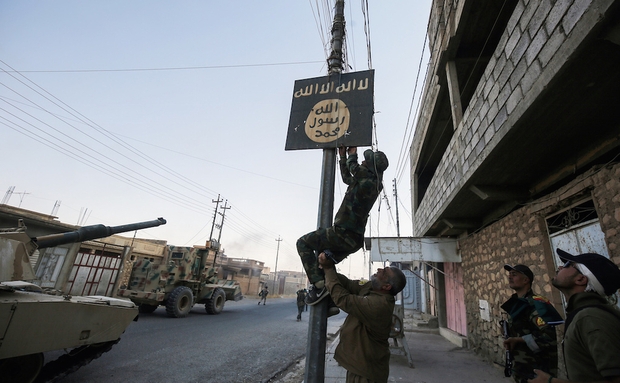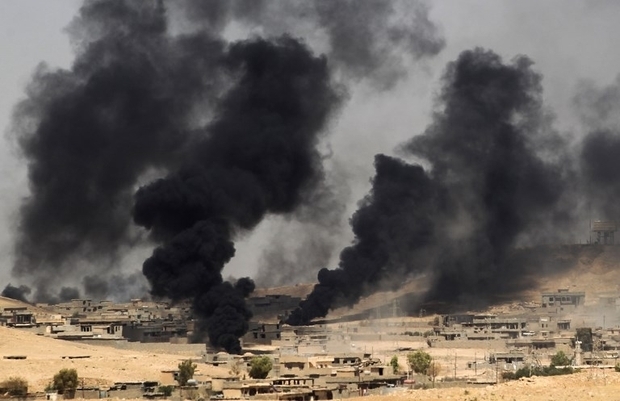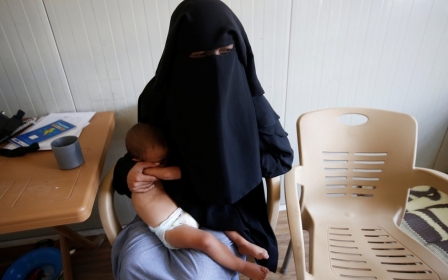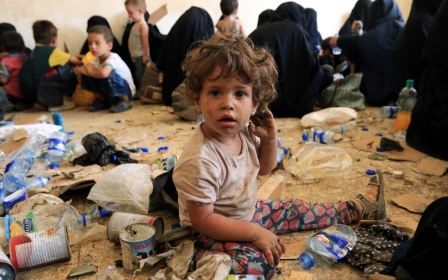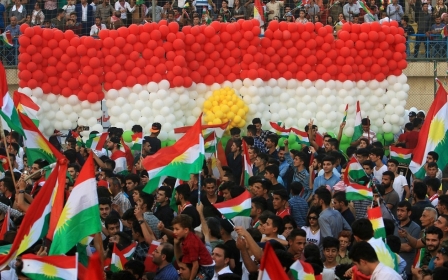Iraq after the Islamic State: The era of all-out revenge
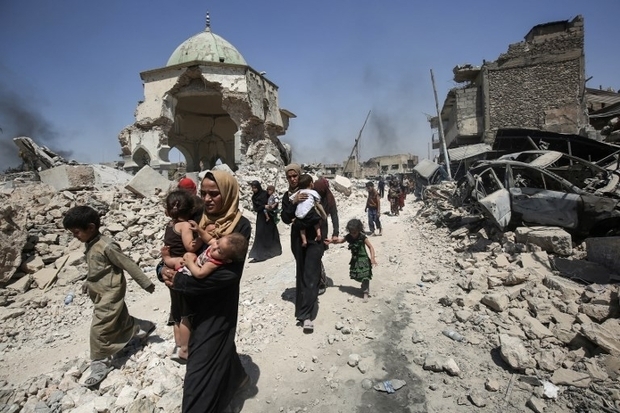
On 9 July 2017, at the beginning of a stifling summer, Prime Minister Haidar al-Abadi announced the end of military operations in Mosul, Iraq’s second largest city. Nearly two months later, on 31 August, he further proclaimed the "triumph" of Iraqi troops against the Islamic State (IS) group in the northern enclave of Tal Afar, portrayed as the cornerstone of the "return of the nation".
According to the official narrative, the rehabilitation of these liberated territories should begin quickly and the fate of thousands of civilians, most notably Sunni Arabs, return to normal. However, the "liberation" of the areas which, for several years, stayed under militant control obviously has a very bitter taste.
These acts are the result of a bitter desire for revenge among those who perpetrate them. It's an outcome of retaliation that has fed endless cycles of violence for about 15 years
The legacy left behind by the terrorist organisation seems, in fact, almost insurmountable by its violence; human losses and material devastation are unprecedented. The air strikes and fighting between the various warring parties have disfigured the thousand-year-old city of Mosul and many other areas, making the restoration of peace a particularly delicate issue.
The Kurdish Regional Government's (KRG) referendum on independence, scheduled for 25 September, could also have disastrous consequences, particularly in contested territories such as Kirkuk, where several communities are fighting, and where, since a wave of protests in 2012 and 2013, Sunni Arabs have been left in an unenviable situation which has allowed the militant phenomenon to breed.
In most cases, the "liberators" – Iraqi soldiers, Popular Mobilisation units (Al-Hashd al-Shaabi) and Kurdish forces – have shown a face that is often less engaging than that described by the authorities. Scandals mostly involving the suffering of Sunni Arab populations in particular, but not exclusively, have multiplied since 2016.
Reprisals and divisions
These acts are the result of a bitter desire for revenge among those who perpetrate them. It's an outcome of retaliation that has tragically fed the endless violent cycles that have ravaged Iraq for about 15 years.
In Tal Afar, Sunnis, including Turkmens, fear the vengeance of Shia militias that have been deployed around their city for months. Torture, extrajudicial assassinations and other abuses have admittedly become widespread as the Iraqi forces have fought to take back control of the country, reflecting the extreme polarisation with which groups view one another.
The distinction is thus rarely made between militants and mere Sunni civilians, with the latter systematically held responsible for the armed attacks of their coreligionists.
However, inter-communal violence cannot fully account for the depth of the conflict at work. Indeed, reprisals are complex and multi-faceted, and cannot be reduced solely to the Sunni-Shia cleavage. Both of these communities are affected by the violence, reflecting the complex and unrelenting densification of the conflict.
The series of events involving the militants has had serious repercussions for the Sunni Arabs, now more divided than in the past. The hyper-fragmentation of this constituency points to the national implosion that occurred in Iraq after 2003 and the US invasion. The variety of opinions held among Sunnis in Iraq gives a better sense of the confusion that now reigns everywhere.
Reprisal acts are complex and multi-faceted, and cannot be reduced solely to the Sunni-Shia cleavage
While conceding their sufferings under militant control, many Sunnis continue, for example, to recognise the validity of IS's ideological project which the group attempted to establish during its three years in power.
From the refugee camps where they have been gathered for months, young displaced Sunni Arabs recall the influence that some of the group's leaders exerted on them, and their admiration for their religious knowledge. They sometimes wonder whether living under the reign of the "caliphate" was ultimately preferable to survival under the militias linked to Baghdad and Tehran.
Or better than the Kurdish struggle against the central government which now places them in a position of uncertainty and extreme vulnerability.
The weight of resentment
For some witnesses of this period, IS was too brutal and its members often corrupt, but the objective of restoring morality and faith was a valid and honourable goal among Iraqi Sunnis.
Other accounts of the militant domination are, however, much less charitable. They point out that, in June 2014, not all Sunnis welcomed the fighters, as the legend goes, and that religious conservatism and traditionalism in a city such as Mosul have only partially lent themselves to the terrorist group’s revolutionary enterprise.
Once its promise of justice were written-off, IS's "caliphate" turned into a nightmare for the inhabitants of the conquered provinces, an open-air nightmare woven of deprivation, decapitations, crucifixions, amputations, and drownings on a large scale, enslavement and rape of women from all communities, executions and other abominations that victims still have great difficult discussing.
Any transgression was sanctioned by IS's morality police, the famous hisba, as the group's elite continued to capture resources and wealth without any concern for redistribution.
Violence is omnipresent in "freed" cities and towns, and the feuds within the Sunni community are savage. Score-settling has become commonplace in provinces like al-Anbar, where the Islamic State retains fiefdoms, Nineveh or Salah ad-Din, as well as attacks claimed by the militants who have disappeared underground and tend to take revenge on all those who have collaborated with the coalition and Iraqi forces.
In early September, seven Sunni civilians were killed in al-Qaim, western Iraq, because of their alleged cooperation with security services. Incidents like this are now frequent in Fallujah, Ramadi, Tikrit and many other places.
All victims and perpetrators?
The tribal landscape has undoubtedly been most affected by the rise and subsequent decline of IS. While some Sunni tribes and clans joined the militants early on, others rejected them as soon as they took over in 2014, often at the cost of their survival. The case of the Albu Nimr, whose men were killed by the hundreds, remains emblematic of how IS has used tribal divides with extreme brutality to conquer and eliminate local competitors and opponents.
The case of the Albu Nimr, whose men were killed by the hundreds, remains emblematic of how IS has used tribal divides with extreme brutality to conquer and eliminate local competitors and opponents
The bitterness of those who saw their brothers, cousins and sons murdered is fuelling the desire for revenge over the long term, a sentiment directed at both the central government and provincial authorities – either despised or accused of having abandoned them – as well as the militants and their accomplices among rival tribes or within civil society.
Attached to their honour and its preservation, some tribes will necessarily seek retribution and justice, and will not hesitate to attack clans that joined the militants against them. Such vengeance will only prolong the conflict. An Amnesty International report cites the example of the Sabawi Sunni tribe, whose men led violent retaliatory acts against the clan of a village formerly in the hands of IS.
The Iraqi state, which naturally must now worry about rebuilding a social contract for a country in ruins, is itself a violent player, an armed faction like the paramilitary formations acting outside its sphere of influence. Under such circumstances, the direction that the Sunnis will take could prove decisive for the future of Iraq and its ability to regroup itself as a nation at the very least.
This piece first ran on MEE's French site.
- Myriam Benraad is Assistant Professor in Political Science at the University of Leiden, specialised in Iraq and the Middle East. She is the author of several publications, including Iraq, the Revenge of History. From Foreign Occupation to the Islamic State (Vendémiaire, 2015) and Iraq, from Babylon to the Islamic State. Received Ideas on a Complex Nation (Le Cavalier Bleu, 2015).
The views expressed in this article belong to the author and do not necessarily reflect the editorial policy of Middle East Eye.
Photo: Iraqis pass by the Al-Nuri Mosque, destroyed during the fighting between IS and the Iraqi forces in the old city of Mosul on 5 July 2017 (AFP).
New MEE newsletter: Jerusalem Dispatch
Sign up to get the latest insights and analysis on Israel-Palestine, alongside Turkey Unpacked and other MEE newsletters
Middle East Eye delivers independent and unrivalled coverage and analysis of the Middle East, North Africa and beyond. To learn more about republishing this content and the associated fees, please fill out this form. More about MEE can be found here.



